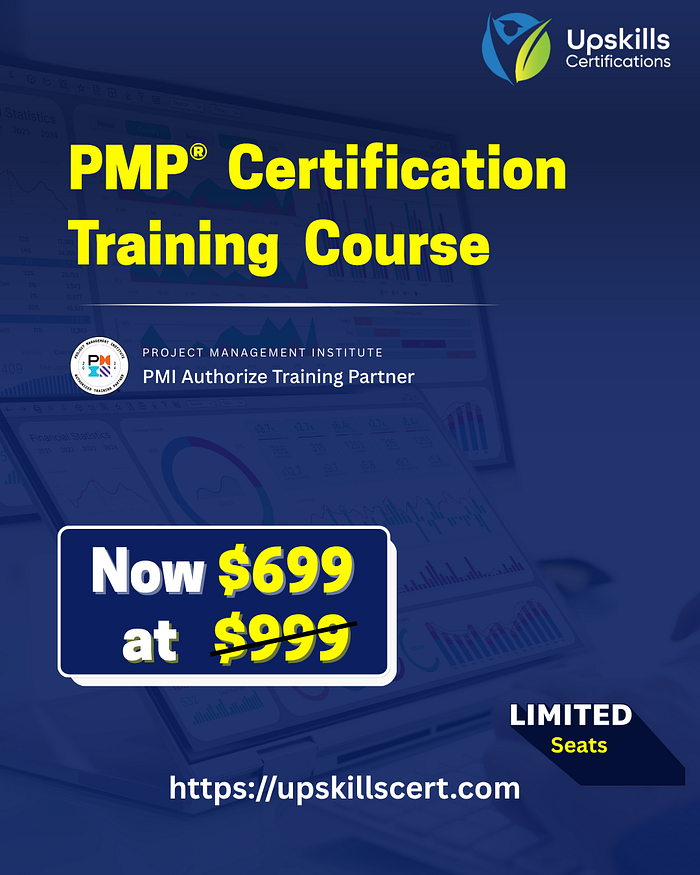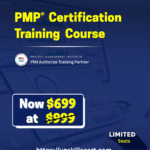
In today’s fast-paced and competitive business environment, effective project management has become a cornerstone of success. Companies across industries rely on skilled project managers to deliver results, manage resources efficiently, and drive innovation. Among the various credentials available, the Project Management Professional (PMP®) certification, offered by the Project Management Institute (PMI), stands out as the gold standard for project managers globally.
Whether you’re a seasoned professional or an aspiring project manager, PMP certification can significantly enhance your career prospects. Let’s explore what PMP is, why it’s valuable, and how you can earn it.
What is PMP Certification?
PMP (Project Management Professional) is a globally recognized certification that validates a professional’s ability to manage projects effectively. It demonstrates that the certified individual has the knowledge, experience, and competence to lead and direct projects successfully. PMP is based on the PMBOK® Guide (Project Management Body of Knowledge) and reflects current best practices and principles used by project managers worldwide.
Why is PMP Certification Important?
- Global Recognition:
PMP is recognized and respected across the globe. It acts as a benchmark of quality in the field of project management and opens doors to opportunities in multinational companies. - Higher Salary Potential:
According to PMI’s salary survey, PMP-certified professionals earn 20–25% more than their non-certified peers. It’s a smart investment that pays off throughout your career. - Stronger Skill Set:
PMP certification equips you with an in-depth understanding of project management tools, techniques, methodologies, and strategic alignment. It strengthens your ability to handle real-world project challenges. - Increased Credibility and Trust:
Employers value PMP as proof of professionalism and commitment. It builds trust with stakeholders, clients, and team members. - Better Job Prospects:
Many top employers list PMP certification as a requirement or a strong preference when hiring for project management roles.
Who Should Get PMP Certified?
PMP is ideal for professionals who have experience in managing projects and want to formalize their skills with a recognized credential. This includes:
- Project Managers
- Team Leaders
- Program Managers
- IT Professionals
- Engineers
- Consultants
- Business Analysts
If you’re aiming to grow into a leadership role or transition into project management, PMP can be a powerful stepping stone.
Eligibility Criteria
To apply for the PMP certification, you must meet one of the following sets of criteria:
If you have a four-year degree (bachelor’s or equivalent):
- 36 months of project management experience
- 35 hours of project management education or a CAPM® certification
If you have a high school diploma or associate’s degree:
- 60 months of project management experience
- 35 hours of project management education or a CAPM® certification
It’s essential to ensure that your experience aligns with PMI’s definition of leading and directing projects.
The PMP Exam Structure
The PMP exam is designed to test your understanding of three key domains:
- People — Emphasizing soft skills and leadership
- Process — Reinforcing technical project management skills
- Business Environment — Highlighting the connection between projects and organizational strategy
The exam consists of 180 multiple-choice questions, and you’ll have 230 minutes to complete it. The questions are a mix of multiple responses, matching, fill-in-the-blank, and more, designed to assess both theoretical knowledge and practical application.
Preparing for the PMP Exam
Preparation is key to passing the PMP exam on the first attempt. Here are some steps to help you get ready:
- Enroll in a PMP training course (online or classroom-based) to meet the 35-hour education requirement.
- Study the PMBOK® Guide and other PMP exam prep books.
- Use practice exams and simulation tools to get used to the format and difficulty level.
- Join PMP study groups or online forums for tips and peer support.
- Create a study plan and follow a disciplined approach to learning.
Maintaining Your Certification
Once you earn the PMP credential, you must earn 60 Professional Development Units (PDUs) every three years to maintain it. This ensures that PMP holders continue learning and stay updated with industry trends and practices.
Final Thoughts
Earning the PMP certification is more than just adding a credential to your resume — it’s a career-transforming step that demonstrates your expertise, commitment, and leadership in project management. With the growing demand for skilled project managers worldwide, now is the perfect time to invest in yourself and stand out from the crowd.
Whether you’re seeking better opportunities, higher pay, or the chance to lead impactful projects, PMP certification can be your gateway to success.

